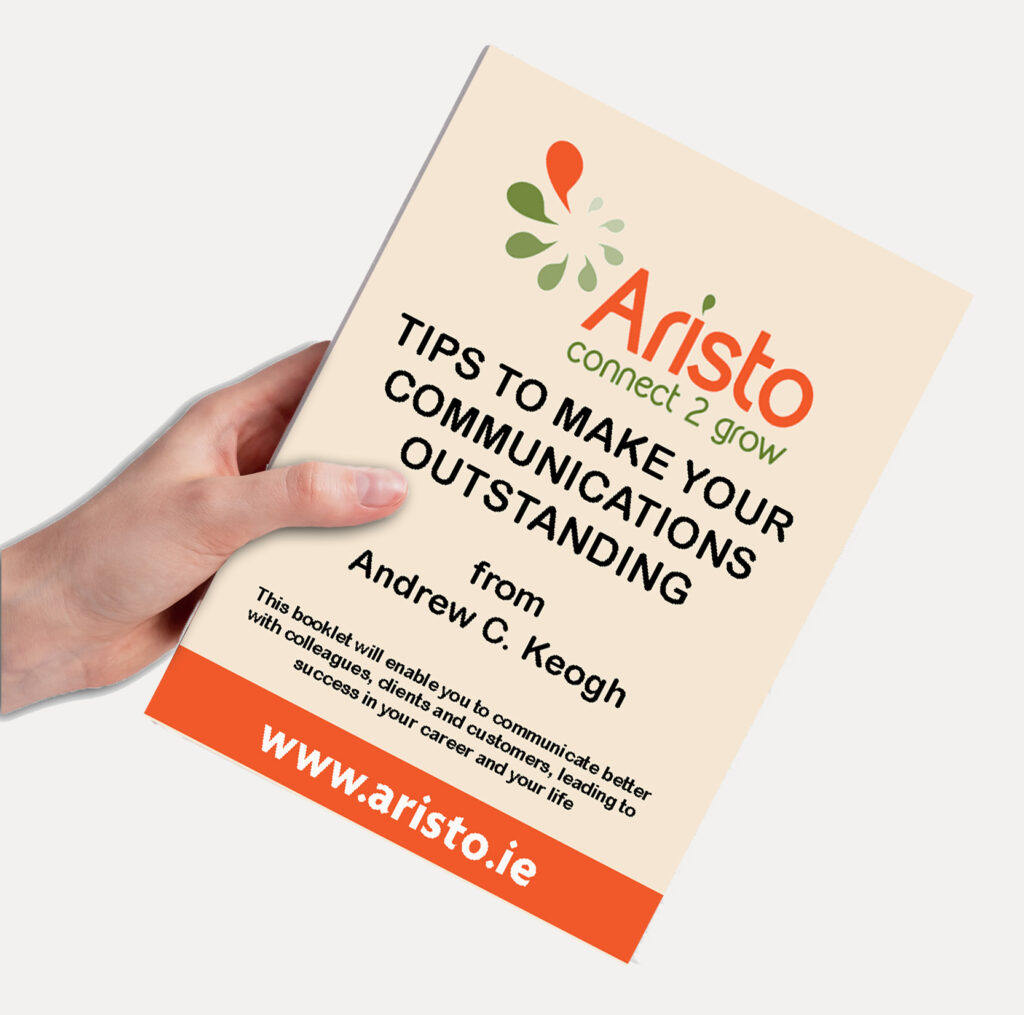
The other day I was in a hardware shop, looking to choose which rawlplug would be most suited for use with my newly insulated walls when my phone rang!
The caller was a prospective customer who had been given my contact details by one of my clients.
This was a surprise, as nowadays the vast majority of people make contact initially by email, so I was taken off guard.
After an introduction and the usual pleasantries this person asked me the question, “What do you do?” Then I made a mistake I tell all my clients never to make.
I heard myself talking about how I deliver coaching, long before I had an understanding of what this person wanted or needed.
Do not make this mistake:
As soon as you start talking about how you roll out your particular intervention, the listener begins to find reasons not to do what you suggest; it’s not the right time, it would be very disruptive, it’s not in the budget, we have no money etc. etc.
You know all the excuses, you’ve heard them all a million times before!
What I should I have done is what I advise my clients to do.
Never answer the question “What do you do?”
Say something like this:
In order to answer your question, I need to have a better understanding of your particular concerns; is it OK if I ask you a few questions which will help me gain a better understanding of how I could be of assistance to you?
I then, with my clients, create a list of questions that elicit the information that will help them have a better understanding of the situation.
It’s not an interrogation:
The questions, when asked, must not cause the listener to feel they are being interrogated.
At the end of this conversational question and answer session, the prospect should have done most of the talking and you most of the listening, ensuring you are now aware of the particular problem they wish to solve.
I have been coaching my clients for years to do the above, yet I and they still from time to time fall into the trap of attempting to answer the question, what do you do, with no understanding of what the questioner wants or needs.
Are you a good listener?
Take time to explore with your prospect needs as sometimes they do not know, and your questioning will help them have a greater understanding.
The ability to listen to understand rather than just respond is the skill that will win you more success.
Take Action:
Should you need to improve in this regard, why not get in touch.





